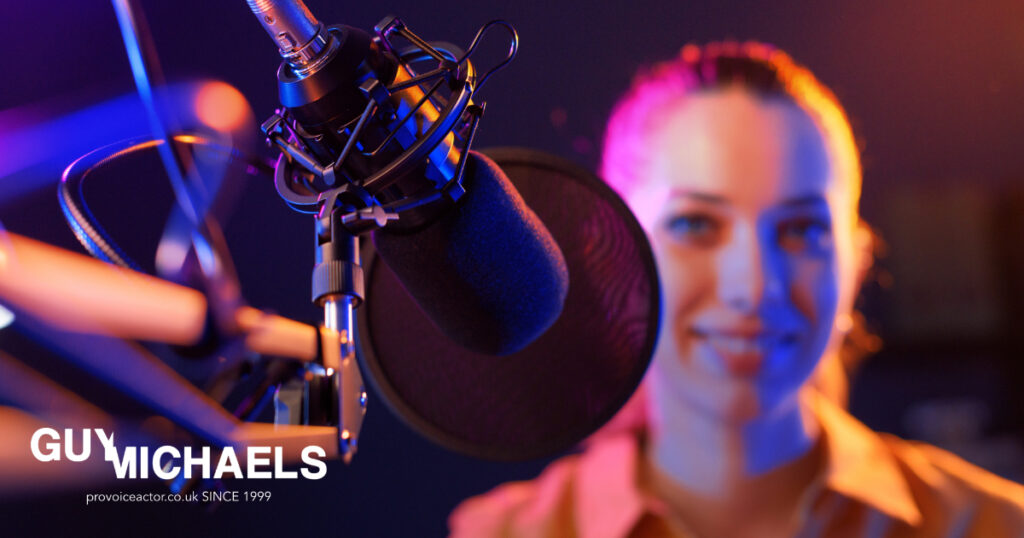The Timeless Influence of Human Voices:
Why Voice Actors Will Always Shine Brighter Than AI
The influence of artificial intelligence (AI) on various industries is undeniable and the realm of voice acting is no different. With the advancement of AI voice technology there is curiosity surrounding how it might impact human voiceover work. While AI generated voices have their advantages, the essence and power of the natural human speech will always stand out.
“Words mean more than what is set down on paper. It takes the human voice to infuse them with deeper meaning.” – Maya Angelou

Emotion: The Human Voice’s Pivotal Edge
AI generated voices can mimic human speech patterns with accuracy. However conveying emotions remains a significant hurdle for them. The subtle nuances of humour, warmth, urgency or vulnerability are deeply ingrained in the tones and inflections of a human voice. Skilled voice actors can elevate a message – be it in commercials or movie trailers – by surgically and instinctively adjusting their tone. Can an AI generated voice replicate this impact?
The Artistry of Storytelling
Voice acting goes beyond recitation; it’s about breathing life into a narrative. Human voice actors possess a grasp of pacing, emphasis and modulation that enables them to lead listeners through a story and craft an engaging experience.
Comparing the experience of listening to an audiobook narrated by a voice actor with one voiced by an AI generator clearly shows a significant difference in engagement and connection.
“The human voice is the most perfect instrument of all.” – Arvo Pärt (Estonian composer)
Versatility and Adaptability in Human Voiceovers
Voice actors bring a versatility to their performances. They can effortlessly shift between conversational tones suitable for explainer video voiceovers and authoritative deliveries needed for business presentations. On the other hand AI voices often come across as rigid or mechanical when taken out of their designated contexts. This lack of flexibility hampers their effectiveness for audio production projects.

The Human Element and Trust
Audiences seek authenticity and a personal connection in the voices they encounter. While AI generated voices may be technically precise they lack the flaws and individual quirks that listeners naturally relate to. This is why radio personalities and podcast hosts maintain followings – it’s that feeling of a genuine person with their own unique charm speaking behind the microphone that resonates deeply.
“Of all the talents bestowed upon men, none is so precious as the gift of oratory. He who enjoys it wields a power more durable than that of a great king.” – Winston Churchill
AI’s Role Versus Human Voiceovers
AI generated voiceovers have applications. For announcements or automated customer service interactions AI generated speech can be efficient and cost effective. However in scenarios where emotional engagement, captivating storytelling and adaptability are crucial – such as, in advertising, entertainment content creation or movie dubbing – human voiceovers remain indispensable.
The Future Landscape of Voice Technology
There’s no doubt that AI voice technology will keep advancing. Text to speech (TTS) systems and personalized voice generation are advancing, providing options for creating content. The best AI voiceover will prove useful in drafting commercial campaigns and likely in scenarios and markets we aren’t even currently aware of. The unique ability of a human narrator to add personality, emotion and creativity to an audio recording will always distinguish them. The human voice can communicate 24 emotions.
In a landscape overflowing with content, audiences are becoming more discerning. The human voice, known for its warmth and ability to create connections is something that speech synthesis technology cannot fully reproduce. Let’s celebrate the skills of voice actors – they are the ones who truly bring words to life through their performances.
